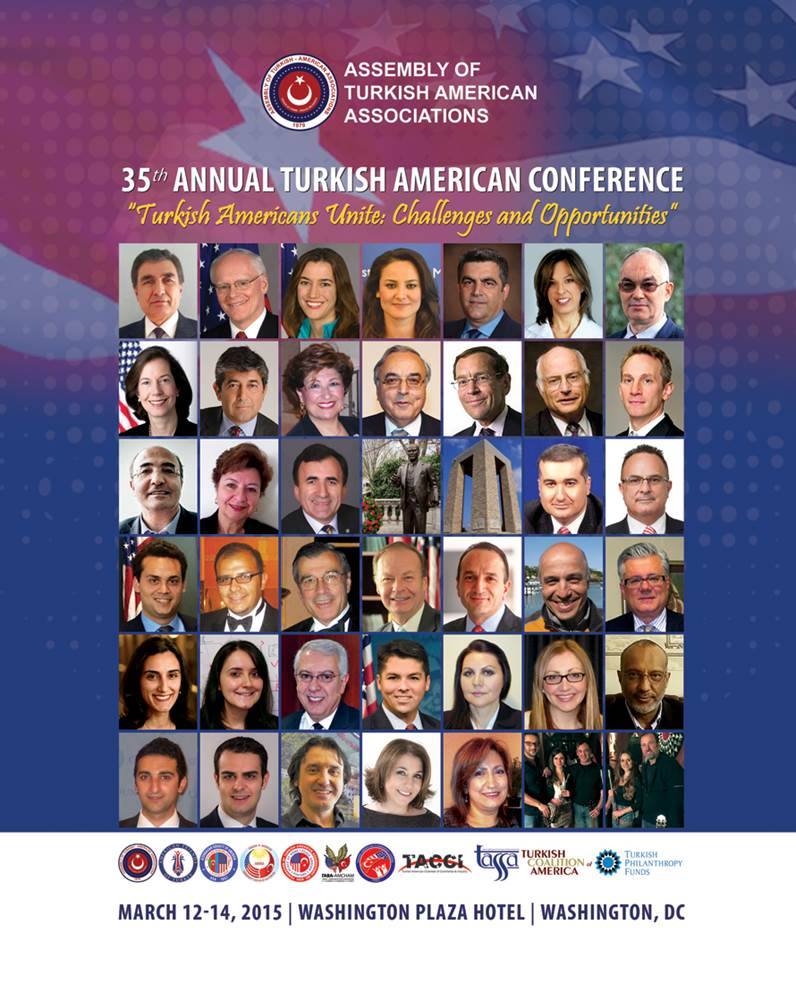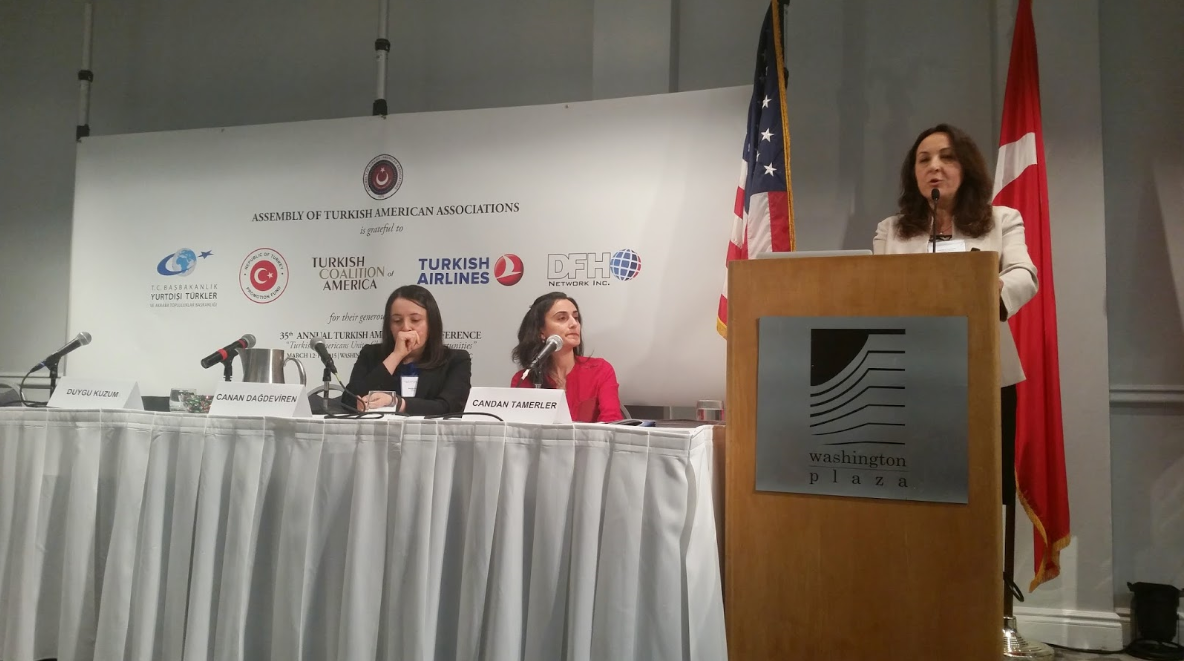TASSA Women In Science and Engineering Session at 35th Annual Turkish American Conference

At the 35th Annual Turkish American Conference, an event organized each year by the Assembly of Turkish American Associations(ATAA), TASSA convened a Women In Science and Engineering (WISE) session. This year’s conference was held at the Washington Plaza Hotel, with several distinguished speakers including the Former Congressman Robert Wexler, Former Ambassador Alev Kilic, Azerbaijani Ambassador to the US Elin Suleymanov, and the Turkish Ambassador to the US, Serdar Kilic. Panels and discussions covered a large spectrum of topics from Transatlantic Trade Investment Partnership to Armenian and Turkish views of 1915 Events, the Gallipoli Centennial and women in science and engineering.
The TASSA WISE session was moderated by Candan Tamerler, Wesley G. Cramer Associate Professor at the University of Kansas, with speakers Canan Dagdeviren, postdoctoral associate at the Massachusetts Institute of Technology and Duygu Kuzum, postdoctoral researcher at the University of Pennsylvania. The session took place on Saturday, March 14th, at 11:00 in the morning. Panel started by providing a summary on TASSA-WISESS mission statements and platform activities. Dr. Dagdeviren, who was recently named to Forbes’ “30 Under 30” for 2015, gave a speech on her work regarding electronic implants that transform muscle motion into energy, eliminating the need for batteries. Dr. Dagdeviren concluded her talk by listing some of her accolades, including being a talented cook as well as a star scientist, and by underlining her ultimate goal of helping people through her work. Dr. Kuzum, one of MIT’s “35 Under 35”, gave a speech on nanoelectric devices which that emulate synaptic computation and plasticity in human brain. A video presentation illustrated the brain-like activities taking place in her nanoelectric circuits. Dr. Kuzum emphasized that a solid understanding of these nanoelectric devices will lead to more natural prosthetic devices and development of computers that more closely mimic human intelligence.
